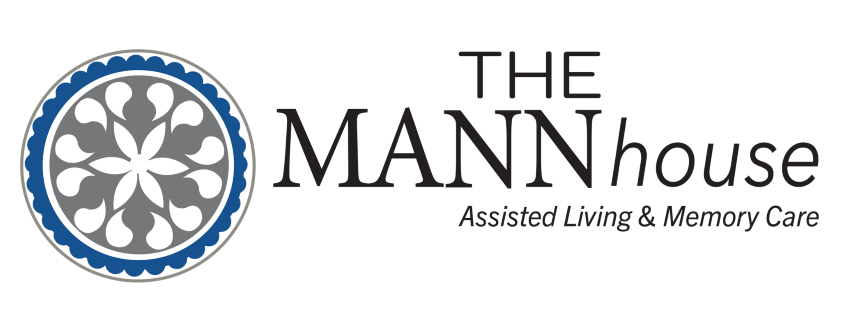As our loved ones age, many prefer to stay in the comfort and familiarity of their own homes. However, ensuring their safety becomes a top priority. In this comprehensive guide, we’ll discuss essential safety measures for seniors aging at home, providing a detailed checklist to help you assess potential risks.
With this safety checklist for seniors, we’ll explore why aging parents choose to remain at home, the importance of identifying safety concerns, and why transitioning to an assisted living community like The Mann House in Cumming may offer a safer and more supportive environment.
Why Older Parents Choose to Age at Home
The decision for older adults to age at home is often deeply rooted in emotional attachment and sentimental value associated with their residence. For many, their home represents more than just a physical structure; it embodies a lifetime of memories, cherished moments, and familial ties. The walls hold stories of laughter, love, and milestones, making it a place of comfort and security.
Being surrounded by familiar surroundings can evoke a sense of nostalgia and provide a source of emotional stability during the aging process.
Independence is another key factor driving seniors’ desire to age at home. After decades of autonomy and self-sufficiency, the thought of relinquishing control over one’s living environment can be daunting. Remaining in their own home allows older adults to maintain a sense of self-reliance and freedom, enabling them to make decisions about their daily routines, activities, and lifestyle choices independently.
This autonomy fosters a sense of empowerment and dignity, which are essential components of healthy aging.
Moreover, aging at home offers a level of familiarity and predictability that can positively impact overall well-being. Routine plays a crucial role in maintaining mental and emotional stability, especially for older adults. Familiar surroundings, routines, and rituals provide a sense of continuity and stability, reducing anxiety and stress associated with major life changes.
From the layout of the furniture to the scent of the kitchen, every aspect of the home carries memories and associations that contribute to a sense of security and comfort.
Additionally, aging at home allows seniors to remain connected to their community and social network. The neighborhood represents a support system of friends, neighbors, and acquaintances who offer companionship, assistance, and emotional support. Maintaining social connections is vital for combating loneliness and isolation, which are prevalent among older adults and can have detrimental effects on mental and physical health.
By staying in their own home, seniors can continue to participate in community activities, attend social gatherings, and engage in meaningful interactions with others, promoting social connectedness and overall well-being.
Overall, the decision to age at home is driven by a desire to preserve independence, maintain emotional connections, and enjoy the comfort of familiar surroundings. .
However, despite the emotional attachment and desire for independence, it’s crucial for families to remain vigilant about their parents’ safety as they age at home.
If you notice signs that their safety may be at risk, it’s important to address these concerns promptly. Reviewing our safety checklist below can help you understand potential safety concerns and take proactive steps to mitigate risks.
Additionally, it’s essential to have open and honest conversations with your parent about their needs and preferences for care. While aging at home can offer many benefits, ensuring the safety and well-being of your loved one should always be the top priority.

Safety Check List for Seniors:
- Home Accessibility:
- Ensure clear pathways free from clutter or tripping hazards.
- Install grab bars and handrails in high-risk areas such as bathrooms and staircases.
- Consider ramps or stairlifts for easy mobility.
- Fall Prevention:
- Remove loose rugs or secure them with non-slip backing.
- Install adequate lighting in hallways, stairs, and entryways.
- Consider wearing non-slip footwear indoors.
- Medication Management:
- Organize medications in labeled containers.
- Use pill organizers or medication reminder apps to track doses.
- Dispose of expired medications properly.
- Emergency Preparedness:
- Have a medical alert system or emergency call button readily available.
- Create a list of emergency contacts and keep it visible.
- Conduct regular fire and carbon monoxide alarm checks.
- Home Security:
- Install deadbolts and security systems to prevent intrusions.
- Consider smart home technology for remote monitoring.
- Keep valuables secure and out of sight.
It’s essential to have open and honest conversations with your parent about their needs and preferences for care. While aging at home can offer many benefits, ensuring the safety and well-being of your loved one should always be the top priority.
Why The Mann House Cumming Assisted Living Community
Despite the efforts to ensure safety at home, there may come a time when the level of care required exceeds what can be provided independently. At The Mann House Cumming Assisted Living community, we offer a supportive environment where seniors can thrive while receiving personalized care and assistance with daily activities.
Our trained and dedicated team members ensure round-the-clock supervision, medication management, and assistance with mobility, providing families with peace of mind.
With a focus on safety, comfort, and engagement, our community offers a holistic approach to senior care, fostering independence and dignity.
Schedule A Tour With The Senior Living Experts
While aging at home offers independence and familiarity, ensuring safety can be challenging as older adults face physical and cognitive changes. By implementing the safety checklist outlined above, families can mitigate risks and create a safer environment for aging parents.
However, if safety concerns persist or care needs escalate, transitioning to an assisted living community like The Mann House Cumming may offer a more secure and supportive option. With tailored care plans and a focus on well-being, assisted living communities provide seniors with the assistance and resources they need to age gracefully and maintain a high quality of life.
Schedule a tour today at The Mann House Cumming to learn how your loved one’s safety is our number one priority.





